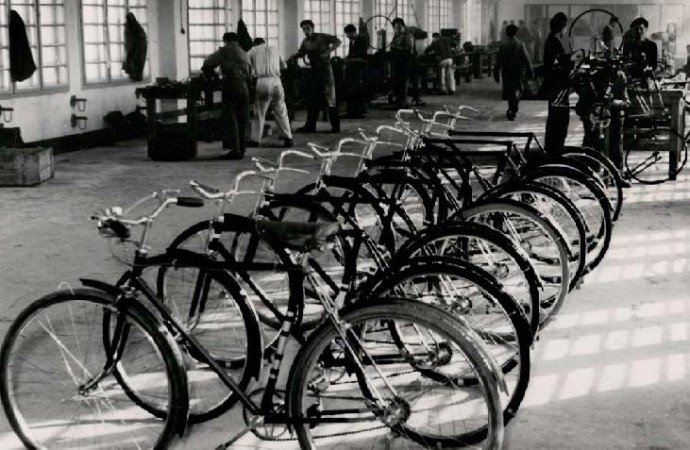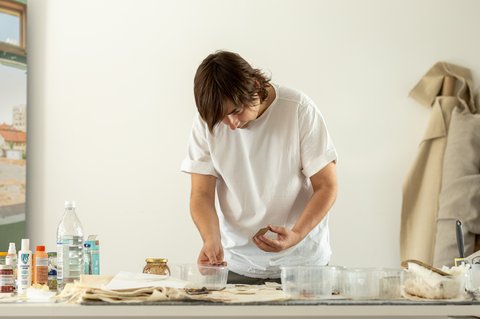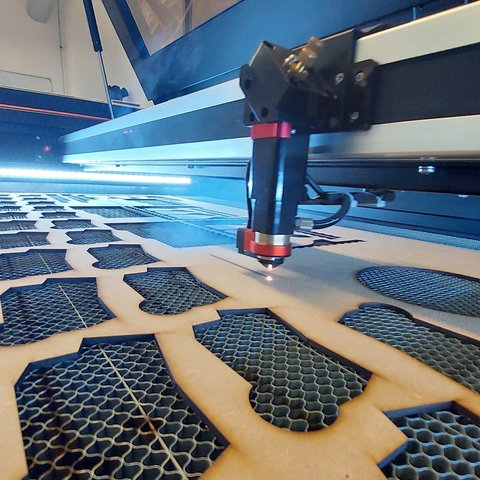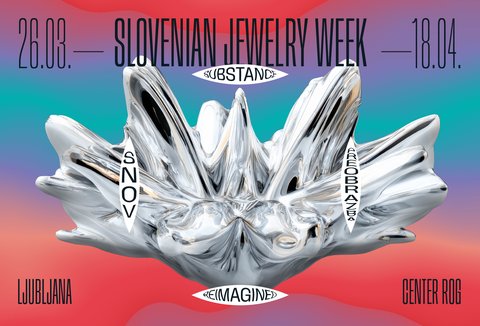So Long, Factory - A Cycling Tour Through Industrial Sites and Their Stories

Factories are not all about profits, losses and trade in goods and products, for they are foremost about people and their stories: those who built the factory, ran it and worked in it. On this cycling tour, architect Sonja Ifko (Faculty of Architecture) and anthropologist Nina Vodopivec (Institute of Contemporary History) will take us on a journey through these stories. We will discuss architecture, the various kinds of working experiences, the formation of factory communities and the importance factories have on society. This cycling tour had been inspired by the project So Long, Factory, carried out by the daily newspaper Delo.
We will meet at Kongresni trg at 10:00 a.m. on Saturday, 24 May, and cycle to the Old Tobacco Factory. One of the oldest and largest factories in Ljubljana, which in its time employed as many as 2,500 people, it tells the story of tobacco workers. This is a classic industrial building next to a railway, one in which the workers produced the first filter cigarette – Filter 57 – during the socialist modernisation period. Production ceased quite a while ago and new contents entered its premises; amongst others, the creative industries are trying to establish themselves here, while in the meantime, the factory’s history can be seen in the Tobacco Museum.
Our second stop will be the Old Power Station. At the end of the 19th century, this power plant modernised Ljubljana. It didn’t merely turn on the lights in homes, it also ensured that the machinery in factories kept running. The Old Power Plant was amongst the first (and few) industrial buildings to be recognised as a cultural monument.
The third station on our tour will be Droga Kolinska, a factory well known for its products and now a part of the Atlantic Group. This is where the Kolinska food and coffee factory stood. The factory was erected in one of the newer eastern Ljubljana suburbs. It lies alongside Zelena Jama, a worker’s settlement that obtained its name from its gravel pit. The worker’s settlement passes on the memories of a socially unified and spatially closed community. Railway and factory workers were amongst its first builders.
Our route will lead us through the settlement to the knitwear factory Pletenina. In the past, it used to be the pride of the textile industry; however, nowadays it is merely a silent witness to a present absence. This is a factory that no longer exists, for not a single stone remains.
We will conclude our journey at the former Polak’s tannery, later the Rog bicycle factory, where the workers made the even to this day well-known Poni Ekspres bicycle. This factory was also abandoned, and the former factory halls are today filled with new temporary users. The factory tradition, which will hopefully lead once more to Rog becoming a public production space following its renovation, is gradually being revived by, among others, the pilot project RogLab.
About the mentors
Social anthropologist Nina Vodopivec works as a researcher at the Institute of Contemporary History in Ljubljana. She studies the processes of post-socialist transformation and the ways in which social and political changes are experienced by people in their everyday lives. Her research focuses on the experiences of the industrial work force (with an emphasis on textile workers), the experiences of working and memories of socialism. As a lecturer, she also operates in the field of intercultural communication and global learning.
Architect Sonja Ifko is a lecturer at the Faculty of Architecture at the University of Ljubljana. The central focus of her work is represented by the history of industrial architecture and the study of the influence industrialisation has had on the design and development of space. She focuses on protecting and revitalising areas of architectural heritage and architectural modernism.
The cycling tour is being organised in cooperation with the Ljubljana Cycling Network within the frame of the 2014 Cycling Festival. The newspaper Delo is our media partner.
See more
LUDUS ARTISANAL

Ludus Artisanal marks a new chapter in the brand’s evolution, focusing on the recontextualization of ancient pre-industrial textile crafts from the Balkan and Mediterranean regions to create contemporary designer products. Making use of ...




